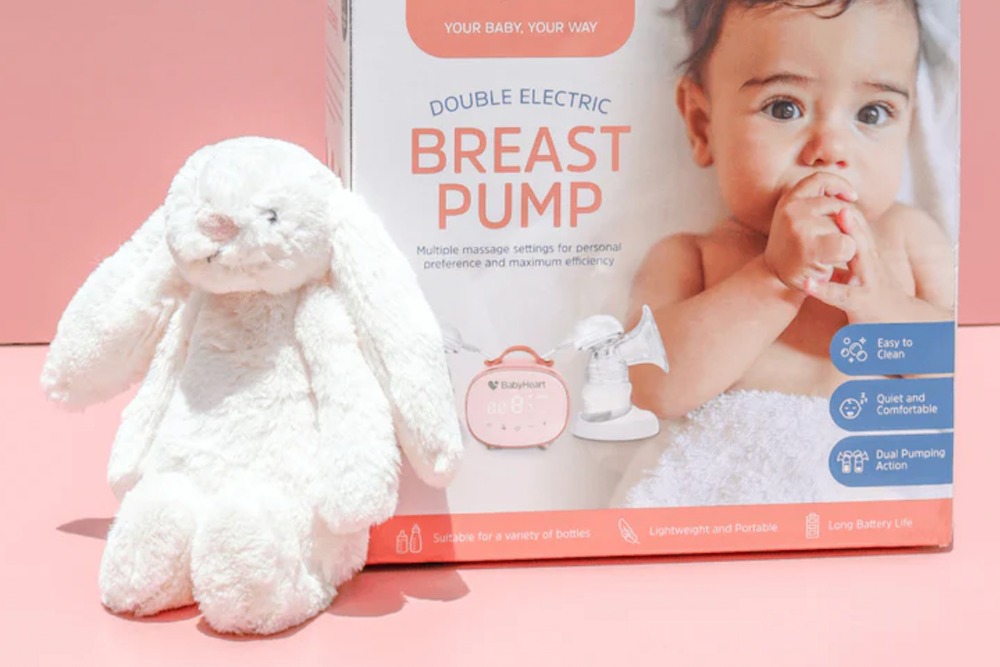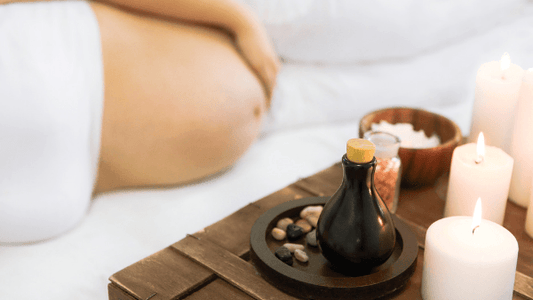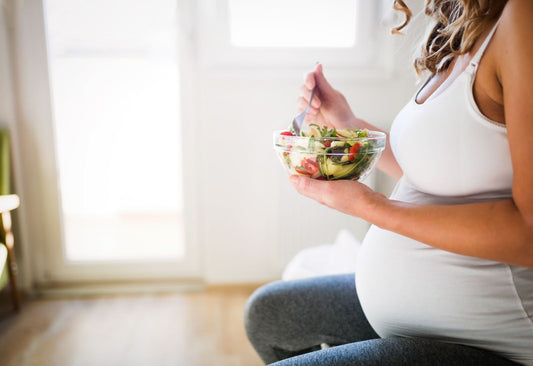
It’s so important to take care of your mind and body, especially when you are pregnant. A massage is a great way to relieve your body from aches and pains and give your mind a break from the racing thoughts of excitement and anticipation.
Before having a pregnancy massage it's advisable to research beforehand to see what they entail. Pregnancy massages aren't your standard body massages. Researching the process helps to ensure that you and your baby stay safe and that the treatment is suitable to your unique situation.
Here are answers to the common questions about pregnancy massages, and some factors to keep in mind to ensure you have a comfortable, safe experience.
Are Pregnancy Massages Safe?
Yes, pregnancy massages are safe, but always talk to your doctor first. For most women, getting pregnancy massages in their second and third trimester is completely safe. But if you have any of the following conditions, it’s best to avoid pregnancy massages and talk to your doctor about how to relieve any discomfort safely.
Avoid pregnancy massages if you have the following:
- If you have pregnancy-induced high blood pressure, pre-eclampsia or sudden swelling with fluid retention.
- If you’re prone to severe headaches.
- If your pregnancy is considered high risk, or if you’ve had a premature baby before.
- If your doctor or medical provider has advised against it.
What Massages Are Safe During Pregnancy?
A few massage techniques are safe during pregnancy, but the critical factor is not the massage itself. It’s the therapist doing it.
Make sure you find a massage therapist who is qualified and specialises in ante-natal or pregnancy massages. Do your research for therapists in your area, and ask your doctor or maternity provider for their recommendations.
When you find a massage therapist, ask them about their training and qualifications. A reputable massage association that many experienced therapists join is the Association of Massage Therapists. This is one of the oldest associations representing massage therapy in Australia, but there are plenty of other massage practitioner groups they may be associated with.
You may also be recommended to a physio who specialises in pregnancy and pregnancy-related care too.
One of the most common pregnancy-safe massage techniques used is Swedish based. This uses long strokes made up of medium to light pressure. It focuses on lymphatic drainage, increasing blood flow and reducing muscle tension to relax your body.
A massage therapist may also use essential oils to create a calming environment for your massage. There are some essential oils you need to avoid as they can prompt uterine contractions. Some of these include peppermint, nutmeg, thyme and basil.
It’s safer if your massage therapist does a test patch with the essential oils first, just to be sure there are no reactions. You may experience some changes to your skin in pregnancy, so patch testing the oils first is safer. It’s also perfectly fine to ask the massage therapist not to use any essential oils.
How Does a Pregnancy Massage Work?
Lying on your back can be quickly uncomfortable as the baby’s weight is pressing down on important blood circulation pathways and lying on your front is also not an option thanks to that ever-growing baby bump.
The massage tables that have the cutouts for your baby bump are not generally recommended. They allow the abdomen to hang unsupported, which can cause stretching. They can be used, but not for extended periods, instead we recommend sticking to laying on your side for the entire massage just to be safe.
The pregnancy massage therapist will have a range of cushions, pillows and foam to support you and your belly. When you’re researching pregnancy massage therapists, ask about what positions they’ll have you be in as well.
If you feel unstable on the massage table, talk to your massage therapist. Together you can agree upon an alternative that feels safer for you and is ideal for the therapist.
If your massage therapist is massaging too vigorously, tell them. You need to be comfortable with the therapy you’re receiving, so ask them to go a little softer and be open to communicating with them.
During your massage, if you begin to feel ill, lightheaded, nauseous or you just don’t enjoy the experience, you don’t have to continue. It’s okay to stop. Some people don’t enjoy massage and don’t find it relaxing, which is okay.

What Are the Benefits of Pregnancy Massages?
Pregnancy massages are good for the mind and the body!
Good pregnancy massages can reduce your stress hormones, feelings of worry and nervousness and improve your mood. You’ll feel rejuvenated and energised as you’ve just completely relaxed in a way you might not have all pregnancy.
Pregnancy massages may help with heartburn and nausea, but this is not the case for everyone.
Massages also help with the everyday aches a pregnant woman has such as a sore lower back, heaviness in your pelvic bones, swelling of the feet and an aching neck.
Women who have joint pain or sciatic nerve pain often find their muscles fully relax and their symptoms ease. Your muscles will be relaxed, meaning you’ll have a better night's sleep too.
Most women in pregnancy are busy, and rarely stop to take the time to focus on themselves. Pregnancy massages provide an opportunity to stop, relax, and have someone else do something for you!
Are Foot Massages Safe During Pregnancy?
Yes foot massages are safe, but don’t press too hard! There are some pressure points in the feet which are said to induce labour in some cases.
To avoid this, don’t press in any one single area for too long, and stop if you feel any pain.
Another thing to note, if you have varicose veins on your legs, is to avoid deep tissue massages.
Pregnancy Massages at Home - Top Tips
Sometimes the thought of leaving the house or having a stranger touch you just isn’t relaxing. Instead, share these tips with your partner or friend for some quality at-home pregnancy massages:
Start with a gentle back rub:
For a relaxing massage at home, either sit up or lie on your side and have your partner stroke up and down your back. They should focus on the spine, specifically the muscles that sit either side of it. Using long strokes or kneading the muscles with their thumbs or palms will be the most comfortable. For extra comfort and glide, use moisturiser too.
Keep it simple with a scalp massage:
Moving from the nape of the neck to the hairline, spread the fingers on both hands and apply gentle pressure. Circular motions will be the most relaxing.
Relieve those aching feet:
Use lots of moisturisers to make this relaxing and comfortable. Using circular motions with thumbs, work from the toes to the ankle. Make sure to avoid putting pressure on the point between the ankle bone and heel.
Want More Tips on Pregnancy & Beyond?
Contact our customer support team! Our team is invested in your pregnancy journey and have lots of helpful tips, tricks and hints to share. We love to talk, so don’t be afraid to contact us via phone or email!



